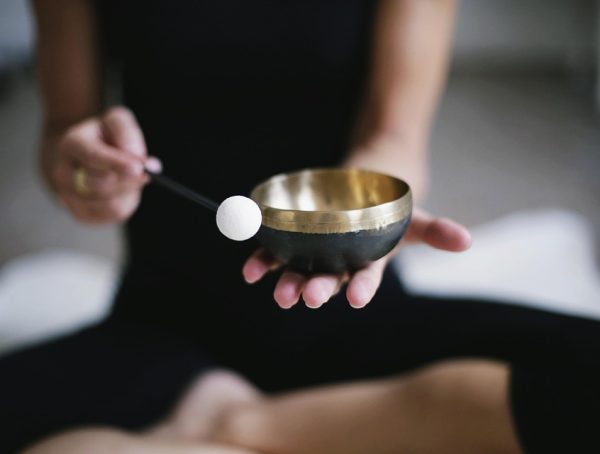Unlocking Your Potential: The Mental Benefits of Mindfulness Meditation
In an age characterized by constant distractions and a fast-paced lifestyle, the ancient practice of mindfulness meditation stands out as a beacon of serenity and self-discovery. While it may seem like a simple act of sitting quietly and focusing on the breath, mindfulness meditation unfolds profound mental benefits that can unlock your potential, enhance your well-being, and foster a greater appreciation of life itself.
Understanding Mindfulness Meditation
Mindfulness meditation is the practice of being fully present in the moment, observing thoughts, feelings, and sensations without judgment. It invites you to cultivate a state of awareness and acceptance of your current experience, whether you’re feeling stressed, joyful, or anything in between. By incorporating mindfulness into daily routines, you can cultivate a heightened state of awareness and improve your mental health.
The Mental Benefits of Mindfulness Meditation
- Reduction in Stress and Anxiety
Numerous studies have shown that mindfulness meditation can significantly reduce stress and anxiety levels. By observing thoughts and reducing ruminative thinking, individuals can create space between themselves and their worries, leading to a calmer mind. When you practice mindfulness, you learn to respond to stressful situations more effectively rather than reacting impulsively.
- Enhanced Focus and Concentration
In today’s world, the ability to focus may seem like a rare commodity. Mindfulness meditation sharpens your attention span and improves your concentration. Regular practice trains your brain to stay anchored in the present moment, making it easier to stay productive and engaged in your tasks, whether they involve work, study, or personal projects.
- Improved Emotional Well-Being
Mindfulness meditation has demonstrated impressive positive effects on emotional regulation. As you become more aware of your thoughts and emotions, you develop a greater understanding of your mental landscape. This awareness allows for healthier emotional responses, fostering resilience against negative emotions like frustration or sadness.
- Greater Self-Awareness
Engaging with your thoughts and feelings through mindfulness allows you to develop a deeper understanding of yourself. Enhanced self-awareness promotes personal growth, helping you identify negative patterns and behaviors that may be holding you back. This self-knowledge is crucial for making informed choices that align with your true values.
- Boosted Creativity and Problem-Solving Skills
Mindfulness promotes an open mindset, which can lead to enhanced creativity. By training your brain to focus and think deeply, allowing thoughts to flow without judgment, you’re more likely to approach problems from fresh angles and come up with innovative solutions.
How to Get Started with Mindfulness Meditation
Incorporating mindfulness meditation into your life doesn’t have to be daunting. Here are some actionable steps to help you get started:
1. Set Aside Time
Start with just five to ten minutes a day. Find a quiet space where you won’t be disturbed. As you become more comfortable, gradually increase this time to 20-30 minutes.
2. Find a Comfortable Position
You can sit cross-legged on the floor, in a chair with your feet flat on the ground, or even lie down—whatever feels most comfortable for you. The key is to maintain an upright posture without straining.
3. Focus on Your Breath
Close your eyes gently and take deep, slow breaths. Instead of trying to block out thoughts, acknowledge them, and bring your awareness back to your breath. Observe the sensation of the air filling your lungs and the rhythm of your breathing.
4. Use Guided Meditations
If you’re new to meditation, consider using guided meditation apps or online resources. These can provide helpful prompts and techniques to build your practice.
5. Practice Mindfulness Throughout Your Day
Mindfulness doesn’t have to be limited to formal meditation. Practice being present during everyday activities such as eating, walking, or even washing dishes. Pay attention to your senses and immerse yourself in the experience.
6. Be Patient with Yourself
Remember, mindfulness is a journey, not a destination. It’s normal for your mind to wander. When it does, gently guide your attention back to your breath or the present moment without judgment.
7. Join a Community or Class
Consider joining a local meditation group or online class. Connecting with others can make your practice more enjoyable and keep you accountable. You’ll also have the opportunity to learn from experienced guides.
Conclusion
Mindfulness meditation is a powerful tool for unlocking your potential and fostering mental clarity, emotional resilience, and self-discovery. By committing to this practice, you will gradually witness the incredible transformation it can create in your life. So why not take the leap today? Embrace mindfulness, and watch your world expand.
As you embark on this journey of self-discovery and mental well-being, remember:
“The mind is everything. What you think you become.” — Buddha
For more insights, motivation, and tips on mindfulness and personal growth, follow Kevin on Instagram (@KSteineman) and explore a community dedicated to unlocking potential and embracing mindfulness!
You might also like
More from Meditation
The Role of Mantras in Transcendental Meditation: A Deep Dive
The Role of Mantras in Transcendental Meditation: A Deep Dive Transcendental Meditation (TM) has garnered a significant following across the globe, …
The Science Behind Meditation: Improving Mental Health Naturally
The Science Behind Meditation: Improving Mental Health Naturally In today's fast-paced world, the pursuit of mental wellness has become paramount. Thousands …
Understanding the 7 Types of Meditation for Beginners
Understanding the 7 Types of Meditation for Beginners: A Path to Inner Peace Meditation has become a popular practice in recent …


































